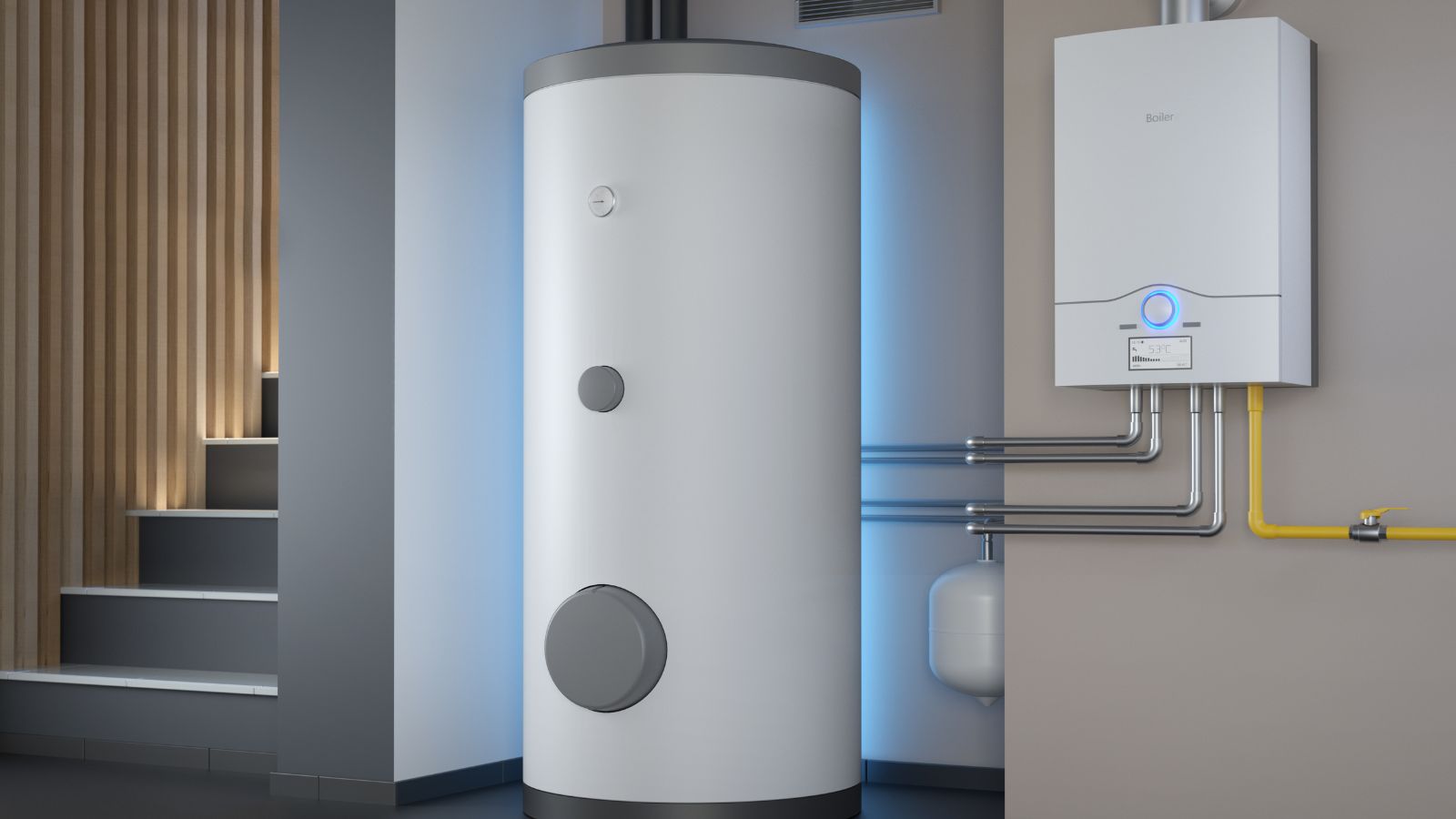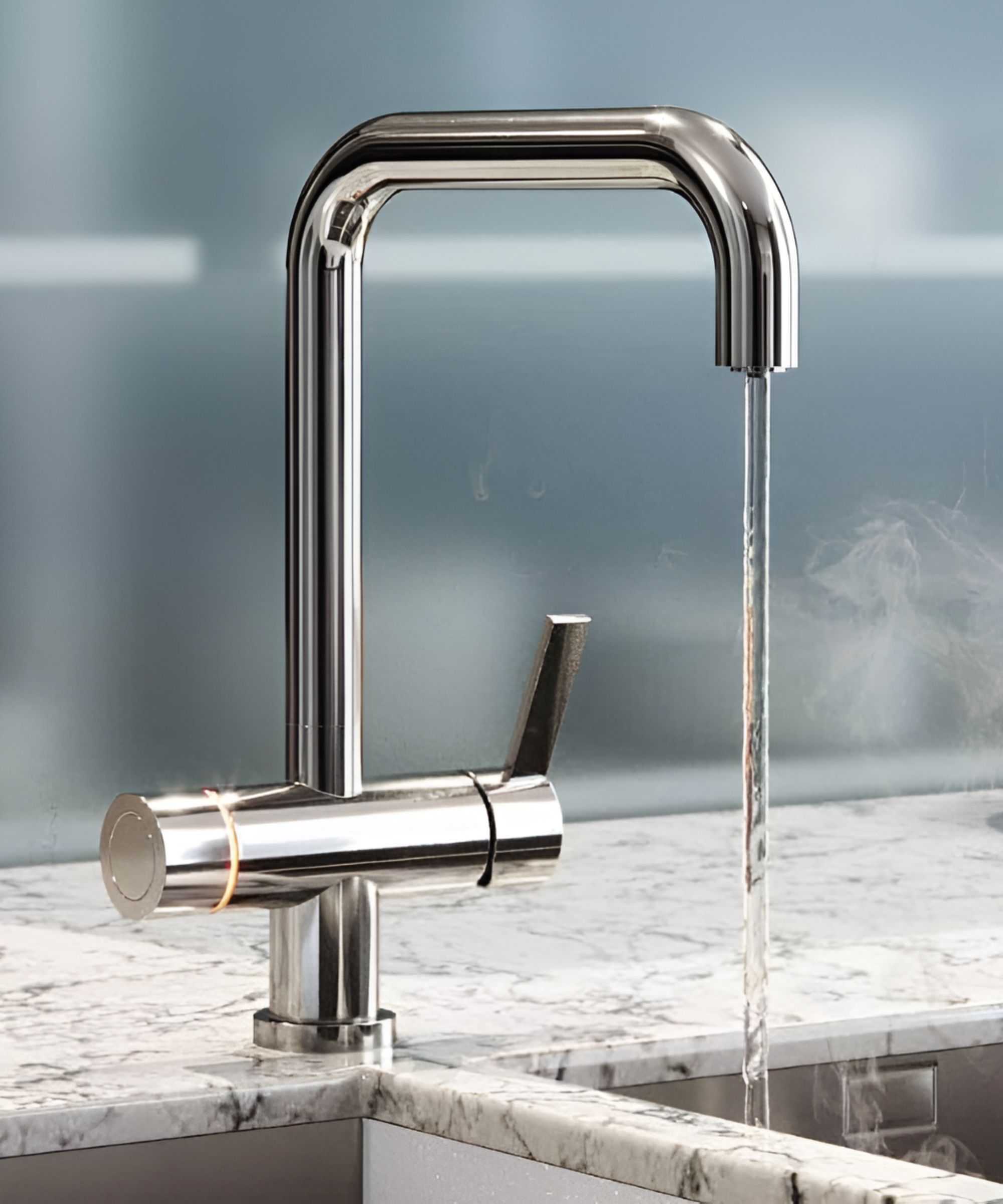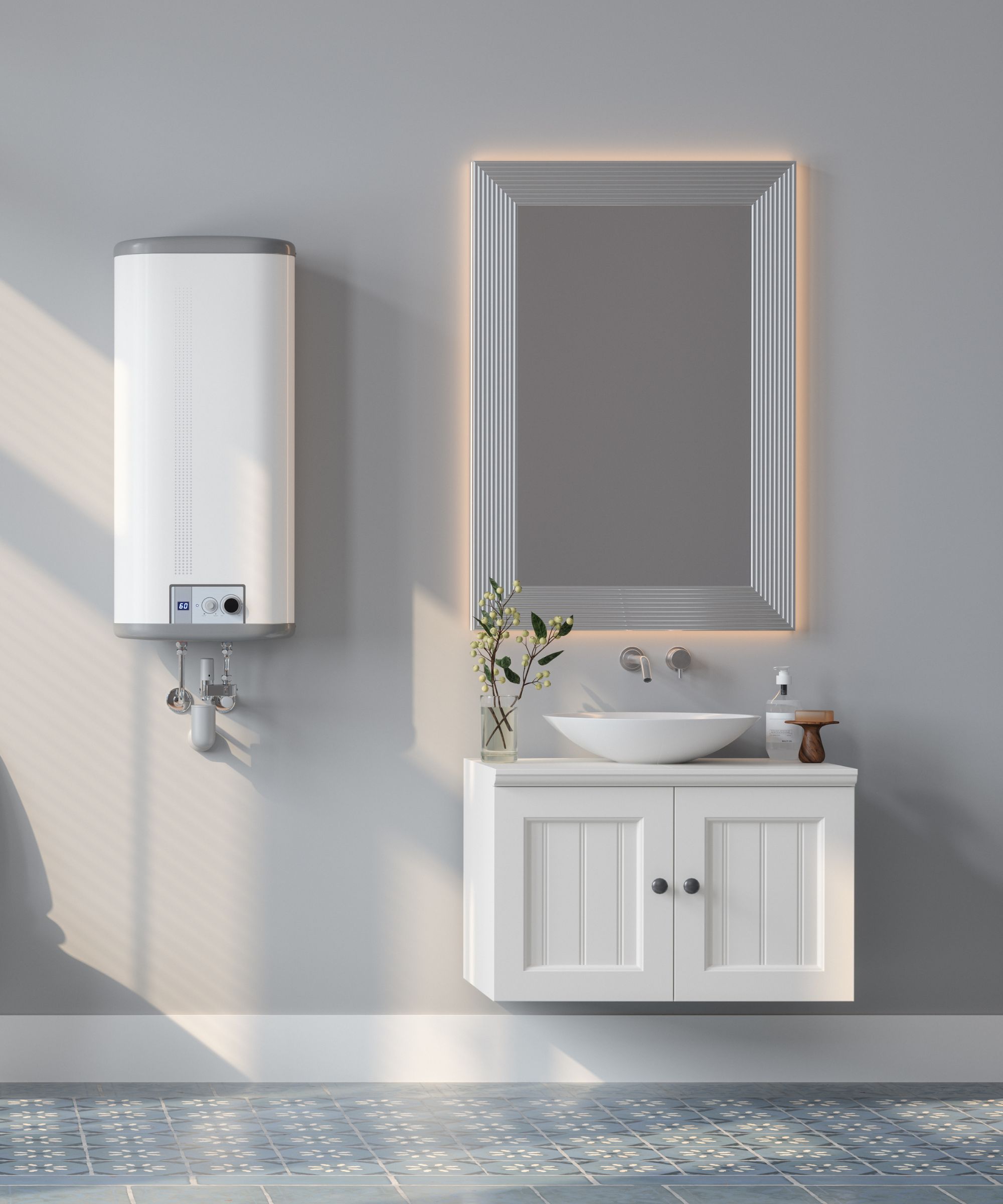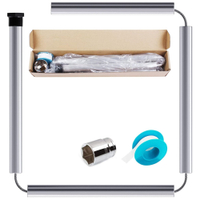8 common water heater problems – and expert solutions on how to fix them
Experts share their advice on how best to deal with these common water heater problems


Like any other household appliance, water heaters are susceptible to problems that can hinder their performance, leaving you without clean, hot water when you need it most. Fortunately, many common water heater problems can be diagnosed and resolved with simple do-it-yourself troubleshooting techniques, saving you time and money on unnecessary repairs.
Identifying issues early on, and using the correct water heater maintenance methods, is essential for ensuring this home heating type remains in good working condition. Taking this proactive approach can not only prolong this appliance's lifespan, but also guarantees a reliable and efficient hot water supply throughout your home.
Below, our experts outline how to effectively diagnose and address the causes of eight common water heater problems.
Common water heater problems and solutions to fix them
Whatever the problem with your water heater, the key is to find a resolution and address it as quickly as possible to get your home back in working order.
1. Lack of hot water

There's nothing more frustrating and unpleasant than an unintentionally cold shower, yet inadequate hot water is one of the most common water heater problems you are likely to face with a water heater, whether it's a matter of insufficient heating or a complete absence of hot water altogether.
Problem
No hot water: 'This is often caused by a malfunctioning heating element (in electric water heaters) or a faulty gas pilot, pilot control valve, or thermocouple (in gas water heaters),' explains plumbing expert and owner of Plumbing Lab, Josh Mitchell.
Insufficient hot water: 'This could be due to an undersized water heater, excessive sediment buildup in the tank, or faulty components like the thermostat or heating elements.'
Solutions
Insufficient hot water:
Flush the water heater: This can help restore proper functionality by removing sediment. Knowing how often you should drain your water heater and doing so accordingly can ensure this issue doesn't arise again in the future.
Adjust the thermostat: If the problem persists, check the thermostat settings and ensure they are correct. 'Ensure it's set to an appropriate temperature, typically around 120 degrees Fahrenheit,' recommends Pranav Taneja, project manager at John The Plumber.
Replace faulty heating elements: If there is insufficient hot water despite proper thermostat settings, inspect the heating element on a gas burner for a malfunction. In this case, it may be necessary to replace this to restore hot water production.
No hot water:
Check the pilot light: If you have a gas water heater and there's no hot water, the first thing you should do is check if the pilot light is out (see point 8). If it is, follow the manufacturer's instructions to relight it.
Replace broken heating elements: 'Next, inspect the heating element or gas burner,' advises Josh Mitchell. 'Look for any signs of malfunction and replace if necessary.
Reset the circuit breaker or replace a failed heating element: 'With electric and water heaters, no hot water could indicate a tripped circuit breaker or failed heating element. If so, reset the circuit breaker or replace a failed heating element.'
Replace a burnt fuse: If the issue is a burnt fuse, you can replace it with a new one, which you can likely find at your local department store for about $20. If you’re hiring a handyman, the total cost to repair the system will likely be around $150.

Josh Mitchell is, a plumbing expert and HVAC technician and the owner of Air Conditioner Lab and Plumbing Lab.
2. Foul odors
If you notice a foul odor, such as a rotten egg smell, emanating from your hot water heater, don't ignore it. This water heater problem indicates potential issues with the water heater or water supply.
Problem
Odors, caused by hydrogen sulfide gas, can indicate bacterial presence in the tank from stagnant water, sediment buildup, an anode rod reaction, corrosion, or contaminated water supply.
Solutions
Flush and clean the tank: Use a mixture of water and hydrogen peroxide – such as this McKesson hydrogen peroxide from Walmart – to eliminate odors and bacteria. Allow the disinfectant solution to circulate throughout the tank before flushing it out thoroughly. This can help to remove sediment buildup and stagnant water, reducing the likelihood of bacterial growth and foul odors.
Inspect and replace the anode rod: If the foul smell is the result of a reaction between the anode rod and sulfate ions in the water, inspect the condition of the anode rod. Generally, the anode rod should be replaced every 3-5 years, so if it is corroded or depleted replace it with a zinc or aluminum one which will be less likely to react with sulfate ions and produce odors.
Check the water supply: If the smell persists even after flushing and disinfecting the tank, your water supply may be the issue. To check if this is the case, you may need to contact a professional or your water utility provider to test the water supply for sulfur, organic matter, or other contaminants and resolve this issue.
Address corrosion: If you notice signs of corrosion in the interior of the water tank heater, be sure to replace any corroded parts.
Regular maintenance: 'Keep the water heater at an appropriate temperature and perform routine maintenance to prevent bacterial growth and odors,' adds
Paranv Taneja.
Aluminum Zinc Anode Rod| $26.99 from Amazon
Get rid of rotten egg smells with this flexible water heater anode rod
This anode rod is compatible with most heaters. It is easy to install due to its flexible design and includes a roll of pipe sealing tape.
3. Low water pressure

Low water pressure means less water is delivered to faucets, showers, and appliances, making it more difficult to perform everyday tasks and limit appliance functionality. Luckily, knowing how to identify and fix low water pressure is relatively simple.
Problem
Low water pressure from hot water taps may result from mineral deposits or a malfunctioning pressure regulator.
Solutions
Check pressure regulator: 'Ensure it's working correctly and adjust if needed,' advises Paranv Taneja.
Remove mineral deposits: 'Flush hot water pipes or use a descaling solution to improve pressure.' You can use this FLOW32 descaler from Amazon.
Consult a plumber: Paranv Taneja continues, 'If problems persist, a plumber can assess and address underlying plumbing issues.'
4. Water leaks
Water heaters can develop leaks which pose a serious problem requiring immediate attention to prevent water damage to your home and ensure your water heater works properly.
Problem
Paranv Taneja explains: 'Water leaks around the water heater can indicate issues like loose connections, corrosion, or a faulty pressure relief valve.
'Leaks can also be caused by loose heating element bolts, a corroded tank, or a faulty temperature and pressure relief valve.'
Solutions
Inspect connections: Check all connections, including inlet and outlet pipes, and tighten loose fittings.
Pressure relief valve: Examine for leaks or corrosion and replace it if needed. If there are significant leaks or internal tank corrosion, professional repair or replacement might be necessary.
Tighten any loose bolts: 'Replace the temperature and pressure relief valve if it’s faulty,' recommends Josh Mitchell. 'If the tank is leaking due to corrosion, unfortunately, you will need to replace the water heater.'
5. The water temperature is too hot

Excessively hot water can make doing anything from washing dishes to showering an impossibly uncomfortable task, luckily, the solution to this water heater problem is often more simple than you might think.
Problem
This is usually a case of setting the thermostat too high, however, it also may be a malfunctioning thermostat that has caused this issue.
Solutions
Ensure the correct thermostat temperature: Check the thermostat to see if it is in the ideal zone of around 120 degrees Fahrenheit. If not, make sure to lower the temperature.
Replace broken thermostat: If the adjustments don’t work, it’s possible that you have a faulty thermostat – and that will need replacing.
6. Strange noises
Strange noises emanating from your hot water heater can be concerning and may indicate underlying issues that require attention to continued safe and efficient operation.
Problem
Unusual noises, such as rumbling, popping, or banging, from the water heater suggest sediment buildup or a faulty heating element.
Solutions
Flush the tank: Drain and thoroughly flush the tank. This water heater flush kit, from Amazon, can be the perfect investment to easily and effectively complete this task This should resolve noises caused by a build-up of sediment in the tank. If noises persist after flushing, inspect the heating element for damage
Replace the heating element or burner: Inspect for damage and replace if necessary.
7. Rusty or discolored water

Discolored water isn't just off-putting, if ingested it can be harmful, and so is a water heater problem that should be dealt with immediately.
Problem
'Rusty or discolored water coming from the hot water taps indicates corrosion inside the water heater tank or pipes,' explains Paranv Taneja.
Solutions
Flush the tank: 'Drain and flush the water heater to remove sediment and rust buildup,' advises Paranv Taneja.
Inspect anode rod: The anode rod helps prevent corrosion within the tank by attracting minerals and other destructive elements. Once it reaches its end of life, the minerals return to degrading the lining of your hot water tank. So, check the condition of the anode rod and replace it if it's heavily corroded.
Consider pipe replacement: If the issue persists after flushing the tank, inspect hot water pipes for corrosion and replace them if necessary.
8. Pilot light or ignition issues (gas water heaters)
The pilot light is a small, continuous flame responsible for igniting the gas burner when hot water is needed. If the pilot light goes out, it can prevent the hot water from functioning properly.
Typically located near the bottom of the water heater, this is something to look for if you are experiencing issues with a lack of hot water or inconsistent hot water temperature.
Problem
'If the pilot light keeps going out or the ignition system fails to start, it could be due to issues with the thermocouple, gas supply, clogged pilot orifice, or electronic ignition,' explains Josh Mitchell.
Solutions
To fix these issues, Paranv Taneja recommends:
Check the thermocouple: 'Ensure it is positioned correctly and not damaged. If faulty, replace it following manufacturer instructions.
Inspect gas supply: 'Verify that the gas valve is open and there are no obstructions in the gas line.
Test electronic ignition system: 'If equipped, troubleshoot the electronic ignition system for any faults and replace components as necessary. Ensure there are no drafts affecting the pilot light area.'
FAQs
Should I replace my water heater before it fails?
The answer is yes, replace it before it fails!
'Doing this gives you the luxury of time to shop around, do the homework, compare prices, and grab some of the best deals you may not want to miss,' says Jay Sanders at Maryland Contractors.
'Traditional water heaters have a life span of about 8 to 12 years, and tankless ones average between 10 to 20 years, so if you continue to have any of the above problems even after trying to fix your appliance, it’s always better to replace it before it fails.'
What are the benefits of upgrading a water heater?
'The upgraded models of water heaters are usually more energy-efficient, meaning over time, you can save big money on your utility bills,' explains Jay Sanders. 'In fact, using modern water heaters, can save you up to $300 annually on energy costs.
'Moreover, the options like tankless water heaters may provide you with endless hot water. It may lasts up to 20+ years as compared to your traditional water tank models.
'Additionally, by investing in a high-efficiency model, you may also get qualified for specific rebates and credit cards. It may help in overall purchase cost reduction.'
Regardless of whether your water heater is currently experiencing issues, conducting regular inspections is crucial for preventing problems before they arise. By staying proactive and addressing any issues promptly, you can avoid costly repairs and maintain the efficient operation of your water heater to cut energy bills and ensure your home runs smoothly.
We explore how to make your water heater more efficient in our dedicated feature.
Sign up to the Homes & Gardens newsletter
Design expertise in your inbox – from inspiring decorating ideas and beautiful celebrity homes to practical gardening advice and shopping round-ups.

Lola Houlton is a news writer for Homes & Gardens. She has been writing content for Future PLC for the past six years, in particular Homes & Gardens, Real Homes and GardeningEtc. She writes on a broad range of subjects, including practical household advice, recipe articles, and product reviews, working closely with experts in their fields to cover everything from heating to home organization through to house plants. Lola is a graduate, who completed her degree in Psychology at the University of Sussex. She has also spent some time working at the BBC.
-
 Kevin Bacon and Kyra Sedgwick's rustic kitchen island is stunning, but controversial – designers say you can get the look without the hassle
Kevin Bacon and Kyra Sedgwick's rustic kitchen island is stunning, but controversial – designers say you can get the look without the hassleA popular material finds an unorthodox home in the couple's kitchen, but experts disagree on whether it should be used – here's how to do it instead
By Sophie Edwards
-
 How to grow grapefruit for homegrown sweet and tangy, highly nutritious harvests – a fruit tree expert shares their planting and care tips
How to grow grapefruit for homegrown sweet and tangy, highly nutritious harvests – a fruit tree expert shares their planting and care tipsFrom planting to harvesting, this is all you need to know about grapefruit trees
By Drew Swainston
